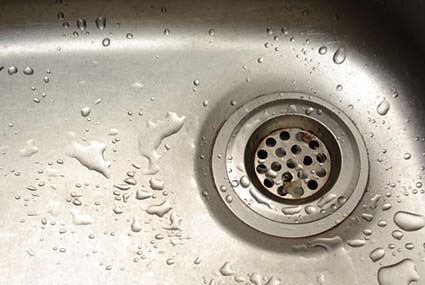In 2013 London water workers had the unenviable task of removing a 15 ton ‘fatberg’ – a huge mass of grease and fat – from sewers underneath Kingston upon Thames. The following year, engineers in Manchester had an even bigger and more unpleasant task of removing a 100 ton lump of congealed fat and grease from sewers under Manchester. This enormous mass weighed the same as 10 double decker buses and took over a week to dislodge.
While you may not subject your drains to quite that amount of grease, it’s easy for pipes to get clogged up quickly if we’re a bit careless when disposing of grease and fat down the sink.
The Fat and Grease problem
According to this information about waste disposal via drains and sewers on the Water UK website, there are some 200,000 sewer blockages in the UK each year, and it’s estimated some 75% are caused by build ups of grease and fat. It costs millions of pounds to clear these blockages, and this is reflected in customer’s water bills.
For commercial premises, there is legislation in place for the correct disposal and handling of waste oil and grease. It’s an offence to discharge any matter into the sewer system that might interfere with the free flowing of waste water.
The issue with grease and fat is the way it reacts with other substances it encounters when it enters the sewers. What with other fats and greases, chemicals and general waste there is a chance of dense deposits forming in the sewer rather like the huge deposits found in London and Manchester as described above.
Easy Tips to keep your Drains Clear
- Get into the habit of pouring grease and cooking fats into a container.
- Use a plughole filter – it won’t completely stop grease going down the plughole but it’s a useful first line of defense.
- Basic maintenance – pour a cup of baking soda and vinegar down the sink every few weeks. Leave it for 5-10 minutes and flush with hot water to help keep your drain clear.
- Pour hot water down your sink after washing up to flush it and help prevent any fatty residues attaching themselves to the pipes. Don’t just rely on pouring hot water down the sink to clear a blockage – it probably won’t be enough on its own.
If you do have a blocked drain, try a plunger or one of the drain unblocking liquids available. If these two measures fail to clear the blockage you’ll need the services of a plumber or a drain specialist. Don’t try other strong chemicals without seeking expert advice.
Septic Tanks
Careless disposal of grease can have dire effects on septic tank systems. Due to the way waste water and sewage is managed, grease can soon interfere with their working efficiently.
The expense of Grease Blockages
If you do continue to empty grease down the sink, you could find yourself with a blockage to clear eventually. A basic blockage in the u-bend is annoying enough to dispose of, but a blockage further along the pipe could entail the need to call a plumber or drainage company in.
In an extreme case, it might affect the drain leading from your property and expensive and disruptive work would be required to access it. Bear in mind this drain – the pipe that connects your property with the sewer system – is your responsibility so you’d be footing the bill.
Something to think about next time you’re clearing up after the Sunday roast!
Fraser Ruthven is the Marketing Associate for London’s leading drainage company- London Drainage Facilities. Fraser feels that people irresponsibly disposing of fats and oils is because an enormous issue that needs to be addressed as soon as possible.





